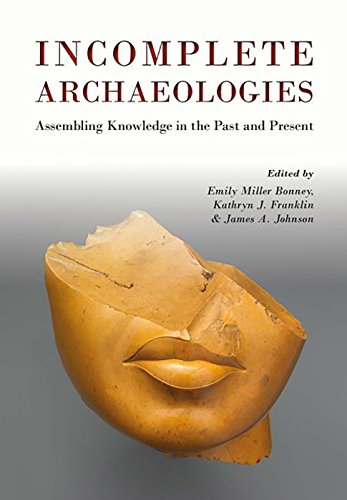

Most ebook files are in PDF format, so you can easily read them using various software such as Foxit Reader or directly on the Google Chrome browser.
Some ebook files are released by publishers in other formats such as .awz, .mobi, .epub, .fb2, etc. You may need to install specific software to read these formats on mobile/PC, such as Calibre.
Please read the tutorial at this link: https://ebookbell.com/faq
We offer FREE conversion to the popular formats you request; however, this may take some time. Therefore, right after payment, please email us, and we will try to provide the service as quickly as possible.
For some exceptional file formats or broken links (if any), please refrain from opening any disputes. Instead, email us first, and we will try to assist within a maximum of 6 hours.
EbookBell Team

0.0
0 reviewsThe ultimate aim is to reassert an awareness of the incompleteness of assemblage, and thus the importance of practices of assembling (whether they seem at first creative or destructive) for understanding social life in the past as well as the present. The individual chapters represent critical engagements with this aim by archaeologists presenting a broad scope of case studies from Eurasia and the Mediterranean. Case studies include discussions of mortuary practice from numerous angles, the sociopolitics of metallurgy, human-animal relationships, landscape and memory, the assembly of political subjectivity and the curation of sovereignty. These studies emphasize the incomplete and ongoing nature of social action in the past, and stress the critical significance of a deeper understanding of formation processes as well as contextual archaeologies to practices of archaeology, museology, art history, and other related disciplines. Contributors challenge archaeologists and others to think past the objects in the assemblage to the practices of assembling, enabling us to consider not only plural modes of interacting with and perceiving things, spaces, human bodies and temporalities in the past, but also to perhaps discover alternate modes of framing these interactions and relationships in our analyses.